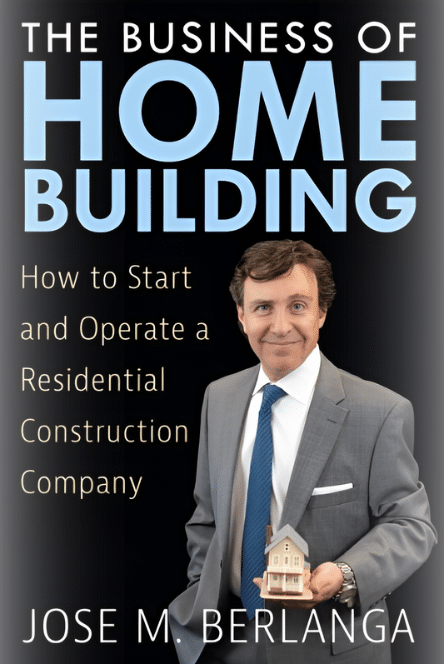By: Wendy Taylor
Borrowing against your home equity is a significant financial decision that can give you access to substantial funds at relatively low interest rates. Whether you’re considering a home equity loan or a line of credit (HELOC), understanding the benefits and risks is crucial to making an informed choice. This strategy may be beneficial for financing significant expenses such as home improvements, debt consolidation, or education costs, depending on personal circumstances. However, it’s essential to weigh the potential risks, including the possibility of foreclosure and increased debt load. By carefully evaluating your financial situation and long-term goals, you can determine if tapping into your home equity is right for you.
For good advice, we turned to entrepreneur and business owner Jose Berlanga, author of The Business of Home Building, for his thoughts on when it is a good idea to borrow against home equity and when it is not.
Jose, let’s begin with a fundamental question: What are some good uses of home equity?
There are many uses for tapping into your home equity, but the number one reason would be a true emergency. Think about it. Money is ultimately for solving problems. It is not for making unnecessary purchases or acquiring luxury products and experiences. It’s better to wait a little longer and make that extra money for those secondary objectives without compromising your homestead.
Some parents may dig into home equity to pay for college tuition and their children’s education, which is a noble cause, but home equity is still not the ideal place to raise the funds.
One plausible good use would be to acquire an income-producing property that is in excess of what the new equity loan payment would be. This way, you can build new equity on two properties. This is perhaps among the best uses, but there’s always the risk of losing the tenants and, therefore, losing the income. It’s risky. In that case, you must have savings or a plan B until you find a replacement tenant.
Starting a new business or providing working capital for an existing one is a great place to use home equity, assuming that you have a clear vision, understand the business you are getting into and are willing to stomach the gamble.
At the end of the day, you need to balance out the risk vs. reward factor. If you feel that you need the money for something you would regret not doing, even if it means risking the loss, then the answer is “go for it” because life is short.
Should you borrow against your home’s equity when your house is fully paid off?
If your goal is to achieve financial security and peace of mind, borrowing against your home equity is not advisable. Many people dream of owning a fully paid, mortgage-free home to ensure they never have to worry about having a place to live. Your home is where you build memories, and if the money isn’t absolutely necessary, urgent, or available from other sources, it is best to avoid borrowing against it. Instead, proactively seek alternative funding options to protect this valuable nest egg.
What are some of the risks of borrowing against home equity?
There are numerous risks to consider before taking this significant step. One risk is that you might need to work longer before retirement to repay the new loan. Additionally, you could lose the borrowed money and end up in a worse financial position. In the worst-case scenario, you might even lose your home if you’re unable to keep up with the payments due to job loss or depleted savings. These are serious risks, so think carefully before proceeding.
Borrowing against your home equity can be a powerful financial tool but requires careful consideration and planning. It’s essential to fully understand both the benefits and the potential pitfalls. While home equity loans and HELOCs offer access to substantial funds at lower interest rates, they also come with significant risks, including the possibility of foreclosure and increased debt burden. Before making such a critical decision, assess your financial situation, explore alternative funding sources, and consider your long-term goals. By weighing the pros and cons and seeking professional advice, you can make an informed decision that aligns with your financial well-being and future aspirations.
Jose Berlanga co-founded Tricon Homes, an industry leader with yearly revenues of $100 million. As CEO, he has structured deals, invested, and negotiated land acquisitions and sales transactions over a billion dollars while managing the day-to-day operations and building close to 2,000 homes to date.
A graduate of the University of St. Thomas with multiple degrees in Business Administration, Economics, and Philosophy, Jose’s discipline and methodical approach allows him to create customized strategies with the aim of maximizing each project’s potential. His passion for business and life has led him to inspire and motivate others by being an example and a mentor who consistently delivers results through a strong work ethic. He is the author of the new book, The Business of Home Building.

Photo Courtesy: Jose Berlanga
Disclaimer: This content is for informational purposes only and is not intended as financial advice, nor does it replace professional financial advice, investment advice, or any other type of advice. You should seek the advice of a qualified financial advisor or other professional before making any financial decisions.
Published by: Nelly Chavez










